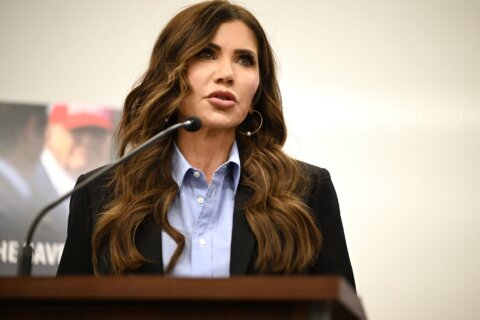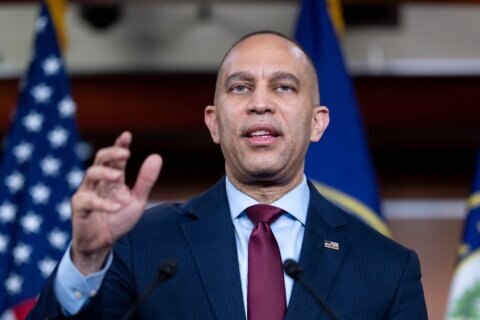Congressional leaders in the coming weeks will try to overcome political angst related to the presidential election and pass major spending legislation to avoid another government shutdown.
The decision by most Republicans to support President Donald Trump’s decision not to concede to President-elect Joe Biden, and let unfounded allegations of voter fraud play out in the courts, upsets Democrats on Capitol Hill. But Senate Majority Leader Mitch McConnell and House Speaker Nancy Pelosi are in general agreement that they need to make progress on a massive spending measure in the coming weeks, ahead of a Dec. 11 deadline.
“I think both sides think it would be better to do an omnibus appropriations bill before the end of the year, rather than another short-term punt,” McConnell told reporters this week.
Pelosi has also indicated a desire to pass legislation during the lame-duck session that would avoid another continuing resolution.
House Majority Leader Steny Hoyer, in a letter to colleagues this week, said lawmakers should expect to focus on an omnibus appropriations measure for the remainder of fiscal year 2021 to “prevent a government shutdown on Dec. 11, when the current continuing resolution expires.”
Though the U.S. Senate has been in session this week, House members return next Monday, on Nov. 16.
Hoyer said the House’s “top priority” will continue to be coronavirus relief legislation.
The House has already passed 10 of its 12 appropriations bills. The Senate is not expected to vote on individual appropriations bills, since there is not enough time.
Senate Republicans have released drafts of the bills, which will be pored over as House and Senate negotiations move forward.
Federal pay freeze?
The Senate proposals include a federal pay freeze for civilian employees.
As Federal News Network has reported, the proposal has drawn criticism from Democratic lawmakers who represent federal employees in the D.C. area.
“We cannot let this stand,” Sen. Chris Van Hollen, D-Md., said in a statement. “I will fight tooth and nail to stop this proposed pay freeze and ensure that the good work of federal employees is fairly compensated.”
Trump earlier this year recommended a 1% across-the-board pay raise.
It remains unclear exactly how — or whether — Trump will get involved in the overall spending legislation, as Biden assembles his administration.
In an unusual move, the White House budget office has directed federal agencies to keep preparing the Trump administration’s spending plan for the coming fiscal year, according to The Washington Post. That’s despite the fact that the president’s budget is not usually issued until February, which would be after Biden is inaugurated as president.
Coronavirus relief
Senate and House leaders continue to say they both want to pass legislation to provide struggling Americans with coronavirus relief, including another possible round of stimulus checks. But they remain far apart on exactly how much to spend.
Before the election, the White House and Pelosi were getting closer to agreement on a measure that would be near $2 trillion. Many Senate Republicans, including McConnell, have made it clear they have no appetite for a measure that costly.
McConnell has stated his desire for “targeted” legislation that would be considerably less.
Still, Senate Minority Leader Chuck Schumer this week reiterated his desire to get COVID-19 relief legislation passed.
“We’re going to have to work together,” he said. “And we are looking for a comprehensive bill that meets the needs of America.”








